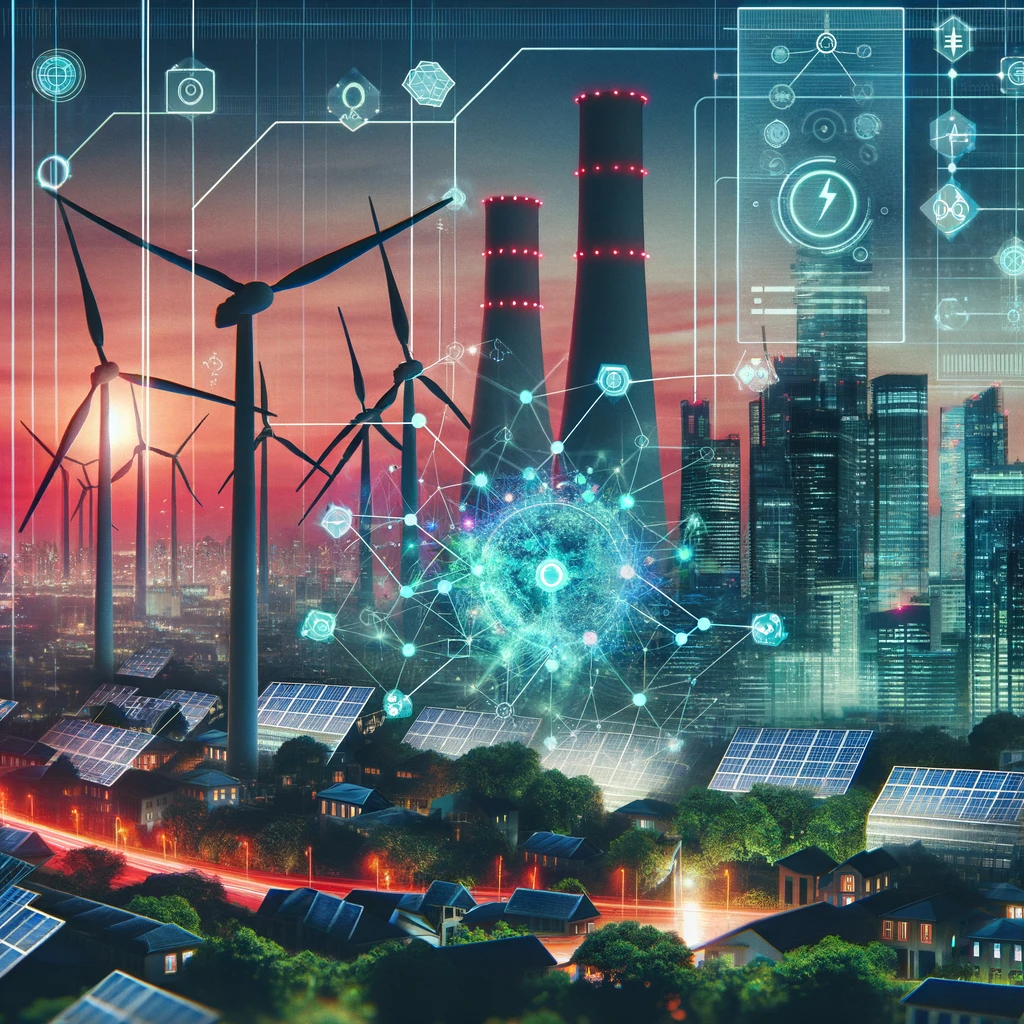The advent of distributed energy resources (DERs) and virtual power plants (VPPs) represents a significant shift in the energy landscape. While these technologies promise increased efficiency and sustainability, their control by distribution system operators (DSOs) and energy market operators (EMOs) raises questions about the potential for technocratic totalitarianism. This post explores the mechanics of DERs and VPPs, their management by DSOs and EMOs, and the broader implications for society.
Understanding Distributed Energy Resources (DERs)
DERs are small-scale electricity generation or storage technologies located close to where electricity is used. These resources include:
- Solar panels on rooftops and in small solar farms
- Wind turbines both onshore and offshore
- Battery storage systems for storing excess energy
- Electric vehicles (EVs) that can feed energy back to the grid
- Combined heat and power (CHP) units which generate electricity and thermal energy simultaneously
DERs offer numerous benefits, such as reducing transmission losses, enhancing grid resilience, and enabling greater integration of renewable energy. However, their decentralized nature requires sophisticated control mechanisms to ensure they operate efficiently and reliably within the broader power grid.
Virtual Power Plants (VPPs)
A VPP aggregates various DERs to create a single, manageable entity. By combining multiple DERs, VPPs can provide similar services to traditional power plants but with greater flexibility and scalability. Key features of VPPs include:
- Real-time monitoring and control of energy resources
- Optimization algorithms to maximize efficiency and profitability
- Market participation to sell excess energy or provide grid services
VPPs leverage advanced software platforms and data analytics to coordinate the operation of DERs, ensuring they collectively contribute to grid stability and meet market demands.
Role of Distribution System Operators (DSOs)
DSOs are responsible for the operation and maintenance of the distribution grid, ensuring reliable electricity delivery to end consumers. With the rise of DERs and VPPs, DSOs face new challenges and opportunities:
- Grid integration: DSOs must integrate a diverse array of DERs into the existing grid infrastructure, requiring advanced grid management systems.
- Balancing supply and demand: Real-time data and predictive analytics help DSOs balance the fluctuating supply from renewable sources with consumer demand.
- Ensuring reliability: DSOs must manage the reliability of the grid amidst the increased variability and complexity introduced by DERs.
Energy Market Operators (EMOs)
EMOs facilitate the trading of electricity between producers and consumers, ensuring efficient market operations. In the context of DERs and VPPs, EMOs play a crucial role in:
- Market design: Developing rules and mechanisms to incorporate DERs and VPPs into existing markets.
- Price signals: Providing price signals to incentivize the optimal use of DERs and the participation of VPPs.
- Coordination: Ensuring coordination between various market participants, including traditional power plants, DERs, and VPPs.
Technocratic Control and the Risk of Totalitarianism
The increasing reliance on digital technologies and centralized control mechanisms in managing DERs and VPPs raises concerns about technocratic governance. Technocracy refers to the government or control of society by technical experts, often relying on technology and data-driven decision-making. This can lead to:
- Centralized control: The concentration of power in the hands of a few technocrats or organizations, reducing democratic oversight and accountability.
- Surveillance and data privacy: The extensive use of data analytics and real-time monitoring can infringe on individual privacy and lead to surveillance.
- Algorithmic governance: Decisions made by algorithms can lack transparency and be difficult to challenge, leading to potential biases and unfair outcomes.
Implications for Society
- Loss of autonomy: As control over energy resources becomes more centralized, individuals and communities may lose their autonomy in managing their own energy needs.
- Inequitable access: Technocratic control may prioritize efficiency and profitability over equitable access to energy resources, exacerbating social and economic inequalities.
- Environmental and ethical concerns: The focus on technological solutions may overshadow the need for broader societal and behavioral changes to address environmental challenges.
The integration of distributed energy resources and virtual power plants into the energy grid offers significant benefits but also poses risks of technocratic totalitarianism. Ensuring a balance between technological advancement and democratic oversight is crucial to prevent the concentration of power and protect individual freedoms. As we navigate this transition, it is essential to prioritize transparency, accountability, and equitable access to ensure a just and sustainable energy future.
Discover more from Kango Anywhere
Subscribe to get the latest posts sent to your email.



